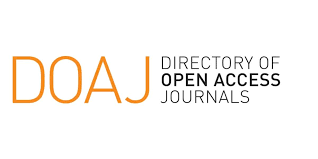Movimiento de Mujeres de Nigeria: el desafío del Patriarcado Estatal
DOI:
https://doi.org/10.36881/ma.v3i2.1010Palabras clave:
Movimiento de Mujeres de Nigeria (WMN), Patriarcado estatal, igualdad de g´énero, activismo de mujerescolonialismo, participación política, feminismo, empoderamiento, África postcolonial, lucha políticaResumen
Este artículo examina el papel del poder estatal en la limitación del Movimiento de Mujeres Nigerianas (MMN) durante la década de 1950, centrándose en los desafíos que enfrentaron las activistas en su búsqueda del empoderamiento y la igualdad de género. El estudio explora el contexto histórico de la marginación de las mujeres en Nigeria, marcado por las prácticas culturales y el colonialismo británico, que restringieron su rol en la sociedad y la política. A pesar de estas barreras, el MMN emergió como una fuerza significativa en la defensa de los derechos de las mujeres, con el objetivo de desafiar las normas sociales y asegurar su participación política. Utilizando una metodología de investigación histórica cualitativa, el estudio emplea el análisis temático y cronológico de materiales de archivo, datos documentales y la contextualización histórica para explorar los objetivos, las estrategias y la interacción del MMN con el patriarcado estatal. Los hallazgos revelan que, si bien el MMN logró avances importantes en la movilización de las mujeres y la defensa de la igualdad de género, sus esfuerzos se vieron obstaculizados por el control estatal y el dominio de los partidos políticos, en particular del Grupo de Acción (GA). La dependencia del movimiento del apoyo gubernamental y la afiliación política finalmente condujo a su declive, lo que demuestra los desafíos que enfrentan las organizaciones de mujeres para mantener su independencia dentro de un sistema político patriarcal. Esta investigación ofrece perspectivas cruciales sobre la intersección del género, el poder y el control estatal en el África poscolonial y enfatiza la importancia de la autonomía organizativa y el apoyo sostenible e independiente al activismo de las mujeres.
Descargas
Citas
Adekogbe, E. (1952, May 5). Nigerian women and the new constitution. Nigerian Tribune. 2.
Adekogbe, E. (1953a, January 1). Women’s Movement. Mrs. Elizabeth Adekogbe Papers. Accessed at the family home of the daughter of the founder of the Women’s Movement, Ibadan, Oyo State, Nigeria.
Adekogbe, E. (1953b, January 25). Women’s Movement. Mrs. Elizabeth Adekogbe Papers. Accessed at the family home of the daughter of the founder of the Women’s Movement, Ibadan, Oyo State, Nigeria.
Adekogbe, E. (1953c, January 30). Women’s Movement. Mrs. Elizabeth Adekogbe Papers. Accessed at the family home of the daughter of the founder of the Women’s Movement, Ibadan, Oyo State, Nigeria.
Adekogbe, E. (1953d, February 7). Women’s Movement. Mrs. Elizabeth Adekogbe Papers. Accessed at the family home of the daughter of the founder of the Women’s Movement, Ibadan, Oyo State, Nigeria.
Adekogbe, E. (1953e, February 7). Women’s Movement. Mrs. Elizabeth Adekogbe Papers. Accessed at the family home of the daughter of the founder of the Women’s Movement, Ibadan, Oyo State, Nigeria.
Adekogbe, E. (1953f, February 28). Women’s Movement. Mrs. Elizabeth Adekogbe Papers. Accessed at the family home of the daughter of the founder of the Women’s Movement, Ibadan, Oyo State, Nigeria.
Adesina, O., Adesina, J., Olibamoyo, N., & Disu, Y. (2024). Silent Protests, Loud Impact: Madam
Alimotu Pelewura (1865–1951) and Women’s Activism in Colonial Lagos, Nigeria. African Historical Review, 55(2), 81-104. https://doi.org/10.1080/17532523.2024.2401675
Akin-Aina, S. (2011). Beyond an epistemology of bread, butter, culture, and power: Mapping the African feminist movement. Nokoko, 2, 65–89. https://carleton.ca/africanstudies/wp-content/uploads/Nokoko-Fall-2011-3-Sinmi.pdf.
Allen, J. V. (1972). Sitting on a man: Colonialism and the lost political institutions of Igbo women. Canadian Journal of African Studies, 6, 165–181. https://scispace.com/pdf/sitting-on-a-man-colonialism-and-the-lost-political-1lqpiyf7ii.pdf
Aniekwu, N. I. (2006). Converging constructions: A historical perspective on sexuality and feminism in post-colonial Africa. African Sociological Review, 10, 143–160. www.jstor.org/stable/afrissocirevi.10.1.143
Anunobi, F. (2002). Women and development in Africa: From marginalization to gender inequality. African Social Science Review, 2, 3. https://.digitalcommons.kennesaw.edu/assr/vol2/issue43
Bawafaa (2024). Marginalization and women's healthcare in Ghana: Incorporating colonial origins, unveiling women's knowledge, and empowering voices. Nursing Inquiry, 31(2), Only printed copy available
Bergstrom, K. (2002). Legacies of colonialism and Islam for Hausa women: An historical analysis, 1804 to 1960. Women and International Development, Michigan State University.
Bordo, S. (2023). Unbearable weight: Feminism, Western culture, and the body. Univ of California Press.
Brock-Utne, B. (2019). Underdevelopment and the oppression of women: A feminist perspective. In Peace Culture and Society (pp. 212-228). Routledge.
Chadya, J. M. (2003). Mother politics: Anti-colonial nationalism and the woman question in Africa. Journal of Women's History, 15, 153–157. www.africabib.org/query_a.php?pe=!049612085!&SR=3
Chiluwa, I. (2025). Women’s Rights Advocacy in Africa. In, S.A. Samoilenko & S. Simmons (eds.). The Handbook of Social and Political Conflict (pp. 393-403). Wiley-Blackwell.
Falola, T. (2021). Writing Nigerian women’s political history. In The Palgrave Handbook of African Women's Studies (pp. 1219-1234). Cham: Springer International Publishing.
Ford, L. (2018). Women and politics: The pursuit of equality. Routledge.
Gouws, A., & Coetzee, A. (2019). Women's movements and feminist activism. Agenda, 33(2), 1-8. https://doi.org/10.1080/10130950.2019.1619263
Hay, C. (2020). Think like a feminist: the philosophy behind the revolution. WW Norton & Company.
International Council of Women Records. (n.d.). Sophia Smith Collection, SSC-MS-00352. Smith College Special Collections. Retrieved August 17, 2023. https://findingaids.smith.edu/repositories/2/resources/1039
Johnson-Odim, C., & Mba, N. (1997). For women and the nation: Funmilayo Ransome-Kuti of Nigeria. University of Illinois Press.
Johnson-Odim, C. (2009). For their freedoms: The anti-imperialist and international feminist activity of Funmilayo Ransome-Kuti of Nigeria. Women's Studies International Forum, 32, 51–59. https://doi.org/10.1016/j.wsif.2009.01.004
Lesthaeghe, R. J. (Ed.). (2023). Reproduction and social organization in sub-Saharan Africa. Univ of California Press.
Mama, A. (2013). Sheroes and Villains: Conceptualizing Colonial and Contemporary Violence against Women in Africa 1. In Feminist genealogies, colonial legacies, democratic futures (pp. 46-62). Routledge. https://www.taylorfrancis.com/chapters/edit/10.4324/9780203724200-4/sheroes-villains-conceptualizing-colonial-contemporary-violence-women-africa-1-amina-mama
Maxine Molyneux , Adrija Dey , Malu A. C. Gatto & Holly Rowden (2020)Feminist activism 25 years after Beijing, Gender & Development, 28:2, 315-336 https://doi.org/10.1080/13552074.2020.1750140
Mba, N. (1982). Nigerian women mobilized: Women’s political activity in Southern Nigeria, 1900–1965. Institute of International Studies, University of California, Berkeley.
McClain, L. C., & Hacker, B. K. (2022). Liberal feminist jurisprudence: Foundational, enduring, adaptive. In D. L. Brake, M. Chamallas, & V. L. Williams (Eds.), The Oxford handbook of feminism and law in the United States (pp. [page range]). Oxford University Press. https://scholarship.law.bu.edu/faculty_scholarship/1153
Mianda, G. (2022). African Feminism, The Emergence of. In Encyclopedia of African Religions and Philosophy (pp. 15-16). Dordrecht: Springer Netherlands.
Mkhize, G., & Mgcotyelwa-Ntoni, N. (2019). The impact of women’s movements’ activism experiences on gender transformation policies in democratic South Africa. Agenda, 33(2), 9–21. https://doi.org/10.1080/10130950.2019.1618637
Narayan, U. (2018). Minds of their own: Choices, autonomy, cultural practices, and other women. In A mind of one's own (pp. 418-432). Routledge.
Omotola, S. (2007). What is this gender talk all about after all? Gender, power, and politics in contemporary Nigeria. African Study Monographs, 28, 33–46. https://repository.kulib.kyoto-u.ac.jp/dspace/bitstream/2433/68255/1/ASM_28_33.pdf
Oni, E. O. (2014). The dynamics of women political emancipation and political participation in Nigeria. Journal of Sustainable Development in Africa, 16, 99–112. https://jsdafrica.com/Jsda/Vol16No3Sum14A/PDF/TheDynamicsWomenPoliticalEmancipationNigeria.pdf
Oyewumi, O. (1989). Women's collective action in Africa: A review of the literature. African Studies Review, 32(3), 55–70.
Okeke–Ihejirika, P., & Franceschet, S. (2002). Democratization and state feminism: Gender politics in Africa and Latin America. Development and Change, 33, 439–466. https://doi.org/10.1111/1467-7660.00262
Panata, S. (2020). ‘Dear Readers…’: Women’s Rights and Duties through Letters to the Editor in the Nigerian Press (1940s-1950s). Sources: Materials & Fieldwork in African Studies, (1), 141-198. https://doi.org/10.4000/11ta0
Tripp, A. M. (2005). Women in movement: Transnational feminism, local activism, and the politics of change in Africa. University of Wisconsin Press.
Ugwuja, A. A., & Onyishi, J. E. (2023). Female political protests in colonial and post-colonial Nigeria: the Abeokuta women’s revolt as a framework, 1945-1999. Preorc Journal of Gender and Sexuality Studies, 1. https://journals.ezenwaohaetorc.org/index.php/PREORCGESS/article/viewFile/1439/1 480
Vintges, K. (2019). Surpassing Liberal Feminism: Beauvoir’s Legacy in Global Perspective. Feminist History of Philosophy: The Recovery and Evaluation of Women's Philosophical Thought, 241-257. https://doi.org/10.1007/978-3-030-18118-5 11
Women’s Movement Constitution. (1952a). 1. Accessed at the family home of the daughter of the founder of the Women’s Movement, Ibadan, Oyo State, Nigeria.
Women’s Movement Constitution. (1952b). 5–6. Accessed at the family home of the daughter of the founder of the Women’s Movement, Ibadan, Oyo State, Nigeria.
Women Movement. (1952c, December 13). Minutes of Meeting held on February 28, 1953, Ibadan, Nigeria. 2–3. Accessed at the family home of the daughter of the founder of the Women’s Movement, Ibadan, Oyo State, Nigeria.
Women Movement (1953a, January 1). Minutes of Meeting held on February 28, 1953. Accessed at the family home of the daughter of the founder of the Women’s Movement, Ibadan, Oyo State, Nigeria.
Women Movement (1953b, January 1). Minutes of Meeting held in February 28, 1953. Accessed at the family home of the daughter of the founder of the Women’s Movement, Ibadan, Oyo State, Nigeria.
Women Movement (1953c, February 28). Minutes of Meeting held on 1953 February 28 Accessed at the family home of the daughter of the founder of the Women’s Movement, Ibadan, Oyo State, Nigeria.
Descargas
Publicado
Cómo citar
Número
Sección
Categorías
Licencia
Derechos de autor 2025 Dauda Jimoh, Yusuff Ridwan, Yusuf Muhammad-Bashir

Esta obra está bajo una licencia internacional Creative Commons Atribución 4.0.
El contenido de las publicaciones es responsabilidad de los autores. La revista permite a los autores mantener los derechos de autor sobre los artículos y documentos publicados. La licencia usada es Commons Reconocimiento -No Comercial Internacional License. CC BY

















